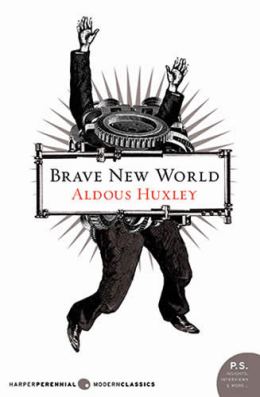
Aldous Huxley’s 1932 work — about a drugged, dull and mass-produced society of the future — has been challenged for its themes of sexuality, drugs and suicide. The book parodies H.G. Wells’ utopian novel Men Like Gods and expresses Huxley’s disdain for the youth- and market-driven culture of the U.S. Chewing gum, then as now a symbol of America’s teenybopper shoppers, appears in the book as a way to deliver sex hormones and subdue anxious adults; pornographic films called feelies are also popular grownup pacifiers. In Huxley’s vision of the 26th century, Henry Ford is the new God (worshippers say Our Ford instead of Our Lord, and the carmaker’s concept of mass production has been applied to human reproduction. As recently as 1993, a group of parents attempted to ban the book in Corona-Norco, Calif., because it “centered around negativity.”
